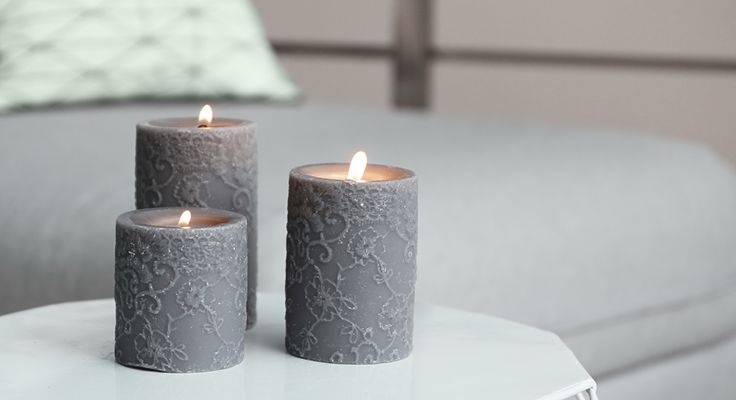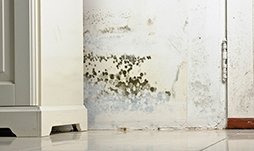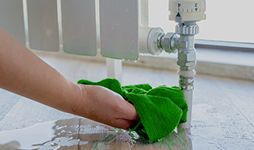Many things can cause fire hazards at home. From faulty appliances and leads to naked flames placed near flammable objects.
This guide will share tips to safeguard your home. You'll also learn how fire hazards might affect your home insurance.

Common fire hazards in your home
Testing your smoke alarm each month is one way of reducing fire risks in your home. But knowing what might cause them will help ensure the safety of you and your loved ones.
Try to think about:
Candles and open flames
Always keep candles on fireproof surfaces or in proper containers. Like a candle holder.
Don’t leave them unattended or close to flammable materials like curtains.
Electricals and appliances
Many domestic fires in the UK come from an electrical source.
Adaptor plugs and other electrical products should be purchased from reputable sources.
Household wiring
It's vital that you check household wiring for signs of wear and tear.
A registered electrician can check the electrical installation of your house. But there are many day-to-day visual checks homeowners can carry out themselves. These include checking plugs and sockets for signs of damage.
For more information, visit Electrical Safety First.
Fairy lights
As pretty as they are, you should switch off your fairy lights when leaving the house.
Overloaded sockets
Contact an electrician if you notice that your wall sockets are overloaded.
Make sure you turn off all unused appliances at night.
Electric blankets
It's usually a good idea to buy electric blankets from a trusted retailer. You might also want to check they have a UK Safety standard symbol on them.
Hair styling tools
Forgetting to unplug your styling tools can cause a blaze quicker than you might think.
Always place on a heatproof mat and unplug after use.
Space heaters
Keep space heaters away from flammables like bedding or clothing. Try to make sure it's unplugged before sleeping too.
Worktop appliances
Keep work surfaces clean and free of wires from kitchen appliances.
Avoid placing metals inside your microwave.
Cooking equipment
Household fires often start in the kitchen. Often by people getting distracted while cooking.
Cluttered kitchens
Cluttered kitchens are another hazard to look out for. Especially when flammables are too close to the hob.
Toasters
A build-up of crumbs in the toaster not only creates a lot of smoke, but they can spark and cause fires.
Cooking grease
Try to keep cookers clean and free from a build-up of grease and replace extractor filters. Take extreme care when using chip pans and hot oil and never leave the appliance unattended.
Deep fat frying
You might want to invest in an electric deep-fat fryer with a thermostat. Pans full of spitting, hot oil can be dangerous.
Chip pans
Never fill the pan more than a third full of oil or try to move it while hot. Also always remember to shake food free of water before adding to hot oil.
Barbeques
Make sure the barbeque is set up on level ground. Away from over-hanging trees, sheds, fences, shrubs or garden waste. Sparks can smoulder and ignite. Use approved fuel to light it and never use petrol or paraffin.
Keep sand or water nearby to put out any flames. When you're done, make sure you extinguish the barbeque.
Bonfires
If you’re lighting a bonfire, avoid days with strong winds.
It's usually best to keep fires well away from fences and drying clothes. Plus never allow cans, batteries or aerosols near the fire.
For peace of mind, keep filled buckets of water handy whenever you light a fire.
Is it a fire hazard to leave chargers plugged in?
Phone chargers could overheat and start a fire if left on. Even though the chances of this happening are quite small.
The London Fire Brigade advises that you shouldn't leave your charger on overnight. You should also avoid covering your device while plugged in or leaving it to charge on soft surfaces.
Is leaving a TV on standby a fire hazard?
On standby, your TV is still getting power from an electric socket. This means there's a risk of overheating or short-circuiting.
This is unlikely to cause a fire, but it's best to be safe and turn your TV off completely if you're not using it.
Are smart devices safer to use?
Smart technology comes as part of most modern homes to make them safer.
Cooking is a leading cause of house fire. So smart devices like stovetop monitors are especially handy. They use motion sensors to send alerts to your phone and even shut off your stove if it detects a fire.
Smart smoke and fire detectors can also provide live phone alerts. Some connect with home security systems. These alert nearby fire departments in an emergency. A few devices even come with in-built carbon monoxide detection.
Smart plugs look the same as normal plugs but you’ll be able to control small appliances from your phone. Still, as with any plug, smart plugs can be a fire hazard if they're not used properly.
Preparation is key
When it comes to fire safety, it’s a good idea to cover against the unexpected.
By using some simple tips in this guide, you’ll be able to safeguard against potential fire hazards in your home. From household wiring to cooking appliances.
Take a look at how our home insurance can help you in case of an emergency.


